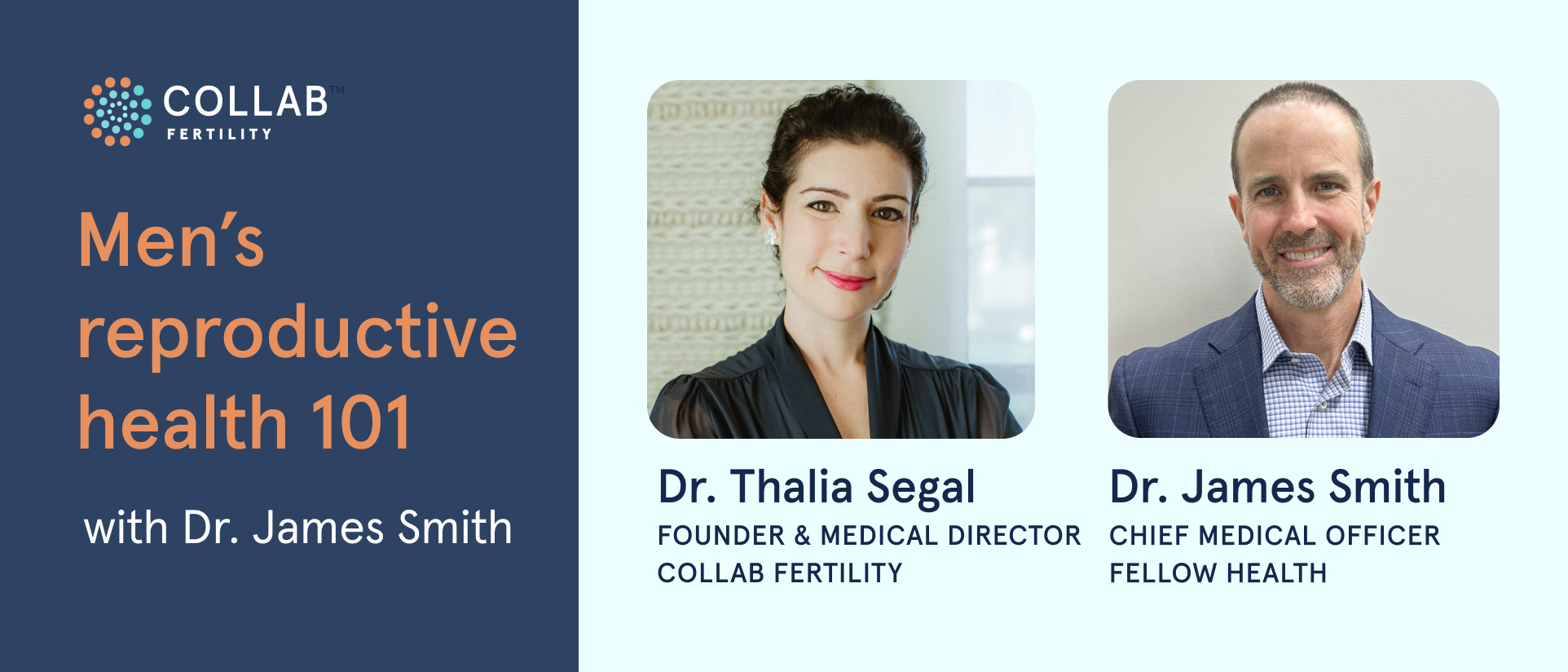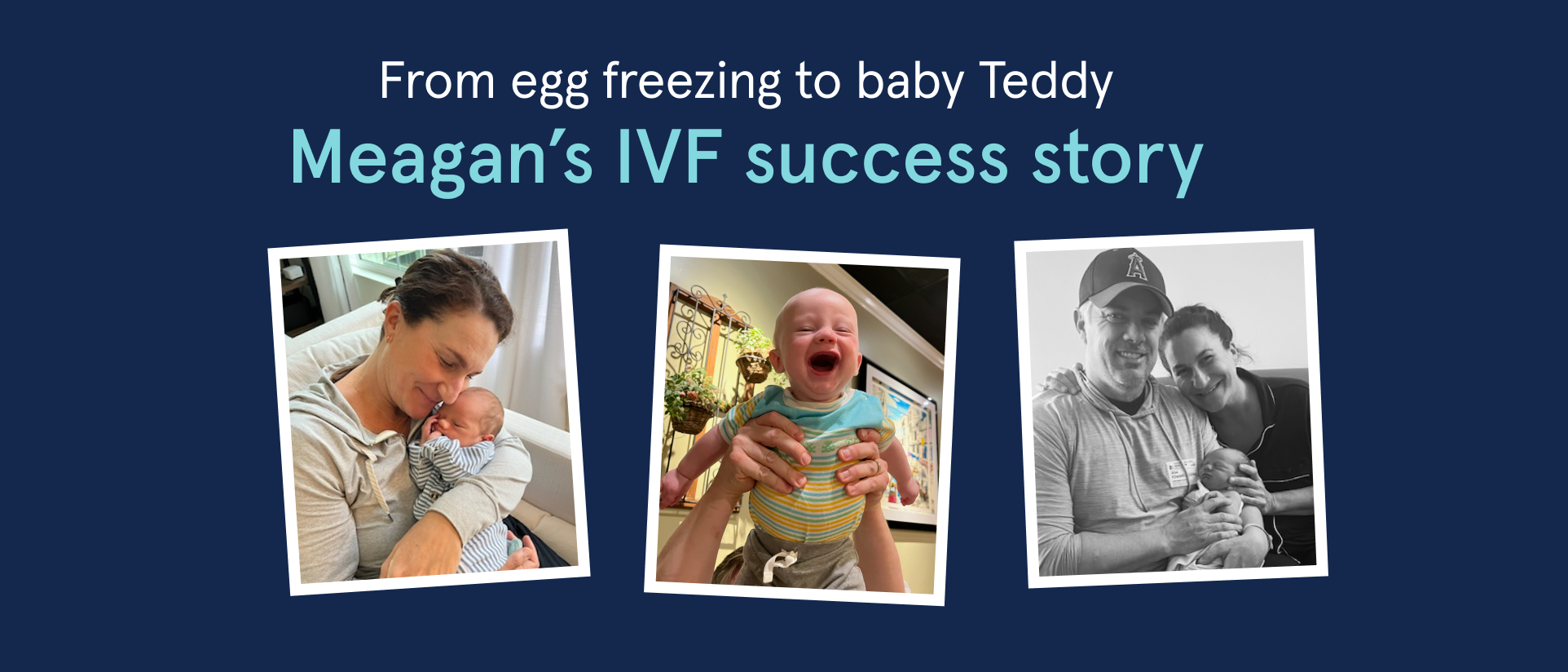
SB 729 is now in effect: what California’s infertility insurance law means for you
Update (January 2026): Senate Bill 729 is now in effect for state-regulated large-group health insurance contracts issued or renewed on or after January 1, 2026. Coverage timing will depend on your employer’s plan renewal date, so some patients may see benefits immediately while others may gain coverage later in the year.
What Is California's Senate Bill 729?
California’s landmark infertility insurance law, Senate Bill 729 (SB 729), officially went into effect on January 1, 2026, expanding infertility coverage for millions of Californians with qualifying insurance plans.
At Collab Fertility, the most comprehensive fertility center in the East Bay, we know how much this law means to patients. SB 729 promises critical coverage for fertility diagnosis and treatment, including IVF, for millions of Californians with large-employer insurance plans regulated by the state. It also marks an important step toward equity, including expanded access for LGBTQ+ families and single parents.
But while expanded coverage is welcome progress, waiting six months or longer may not be the best option for everyone. Keep reading to learn more about SB 729, why timing matters when it comes to fertility care, and what you can do now.
What's new?
In January 2026, the California Department of Managed Health Care issued guidance to health plans outlining compliance requirements for SB 729, confirming coverage for infertility diagnosis and treatment, including IVF, under qualifying plans.
What does California's SB 729 mean for coverage?
You can read the full text of the law, SB 729 Health care coverage: treatment for infertility and fertility services, here.
Senate Bill 729 is applicable to large-group health plans (100+ employees) that are state-regulated. Under the bill, these health plans must cover infertility diagnosis and treatment, explicitly including IVF. It specifically mandates coverage for:
- Up to three complete egg retrievals
- Unlimited embryo transfers, following clinical best practices
- Coverage must be non-discriminatory and equitable, expanding access to LGBTQ+ individuals, single parents, and those who meet a broader definition of infertility
Small-group plans (≤ 100 employees) must offer an infertility coverage option—but are not required to include it by default. It does not cover self-funded (ERISA-governed),
Medi-Cal, CalPERS until 2027, or religious employer plans.
When will my insurance start covering fertility services under SB 729?
Although SB 729 is now in effect, IVF and infertility coverage begins when your employer’s insurance contract renews on or after January 1, 2026. This means some patients may already have coverage, while others may gain access later in the year depending on their plan’s renewal cycle.
What does SB 729 mean for LGBTQ+ families?
SB 729 is a landmark step toward equity in fertility care. For the first time in California, many LGBTQ+ individuals and couples will be eligible for insurance coverage of fertility services, including IVF, under state-regulated large group health plans. That means single parents by choice, same-sex couples, and others who have historically been excluded from coverage may finally gain access to the care they need to grow their families.
While the delay is frustrating, the promise of more inclusive coverage remains, and at Collab Fertility, we’ll continue to advocate for and support LGBTQ+ families every step of the way.
We collaborate with sperm banks, egg donors, and agencies to help our LGBTQ+ patients build their families. Your fertility journey could include reciprocal IVF, donor sperm, an egg donor, a gestational carrier, or a combination of fertility treatments. We can provide you with helpful resources, including referrals to reproductive psychologists for personalized emotional support.
Should I delay my fertility treatment for SB 729?
Now that SB 729 is in effect, many patients are navigating when their specific coverage will begin. While expanded benefits are a major step forward, timing still matters when it comes to fertility care.
We’re here to help you weigh your options, get financial counseling, and access proactive care. If you have questions about your coverage, your fertility health, or whether you should wait, let’s talk.
We’ll continue to advocate for fair, inclusive coverage and keep you informed every step of the way.
Integrative, compassionate, and evidence-based Fertility Care at Collab Fertility
Building your family begins with expert, evidence-based care. At Collab Fertility, our compassionate team is here to guide and support you every step of the way, empowering you to make informed decisions with clarity and confidence while prioritizing both your physical and emotional well-being.
Through The Collab Way, our whole-person approach to fertility care, you’ll receive personalized support that includes nutrition counseling, clean living guidance, and wellness resources designed to improve your chances of success. As part of our patient-first approach, you'll receive a personalized treatment plan based on your age, fertility status, and family goals.
Whether you’re just starting out or further along in your journey, we’re here for you. Every path to parenthood is unique, and all families are welcome and celebrated at Collab.
Our services include:
Same-day fertility testing
IUI
IVF
Egg and embryo freezing
Sperm and egg donor
Gestational carrier
Collab Fertility service areas
Collab is proud to provide compassionate, comprehensive fertility coverage to people who live in Danville, Alamo, Orinda, Lafayette, Moraga, Piedmont, Walnut Creek, Oakland, San Ramon, Concord, Pleasant Hill, Santa Rosa, Novato, Napa, Sonoma, Vallejo, Fairfield, Vacaville, Sacramento, Martinez, Benicia, Brentwood, Oakley, Berkeley, Alameda, San Francisco, Davis, Mill Valley, Tiburon, Ross, Kentfield, Larkspur, San Rafael, and beyond.
Latest Articles

Men’s reproductive health 101: Dr. James Smith answers common questions about male fertility


